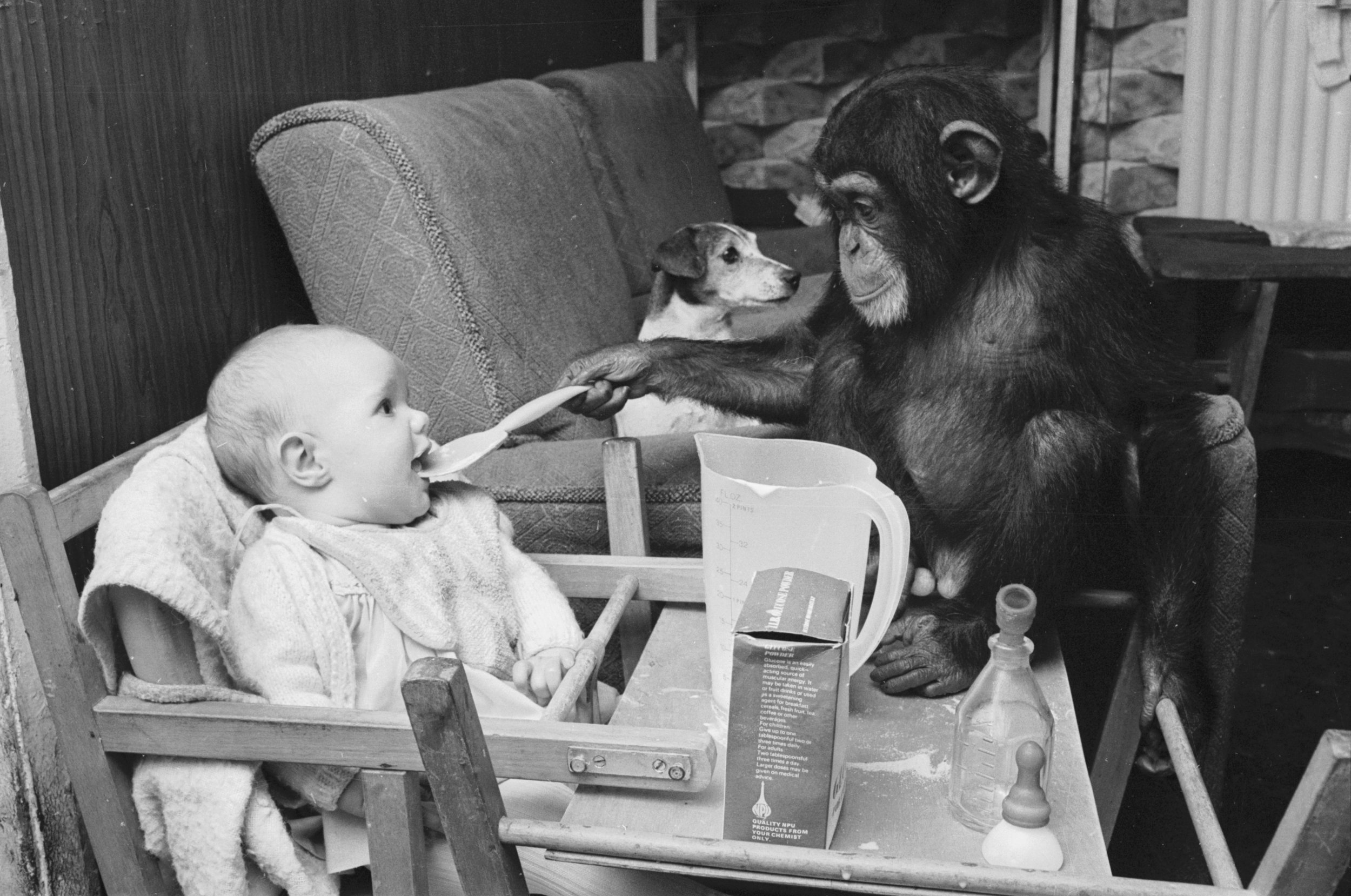
Unlike other primates, humans generally laugh only as they exhale—a curiosity that has long puzzled researchers.
Now, an international team of psychologists has found that babies laugh both as they exhale and inhale, in a similar manner to nonhuman primates like chimps and gorillas, according to research presented at the Acoustical Society of America's 176th Meeting in Victoria, British Columbia.
"The original idea for this specific project came from an observation of baby laughter and the thought that it sounded a bit like chimp laughter, and so we decided to investigate it," lead investigator Disa Sauter, from the University of Amsterdam, told Newsweek.
The team studied recordings of laughter from 44 infants and children between 3 and 18 months old, taken from online videos in which the youngsters were engaged in playful interactions.
The team then asked 102 student participants to evaluate whether they thought the laughs in each clip were produced on the inhale or the exhale.
According to the responses of the participants, the youngest babies laughed on both inhalation and exhalation, like chimps and other nonhuman primates. The older babies were only perceived to laugh on the exhale, like older children and adults.
"Our results show a gradual change in the proportion of laughter occurring on the inhale, such that younger infants seem to laugh in a way that is not dissimilar to chimpanzees on this measure, whereas older infants are more similar to human adults," Sauter said.
"Adult humans sometimes laugh on the inhale but the proportion is markedly different from that of infants' and chimps' laughs."
This change in the proportion of laughter occurring on the inhale compared to the exhale does not appear to be linked to any particular developmental milestones, according to the researchers.
It is important to note though that these results are only preliminary because they are based on the judgments of non-expert listeners.
"We are currently checking those results against judgments by phoneticians, who are making detailed annotations of the laughter," Sauter said.
The researchers say there is no accepted explanation as to why humans are the only primates that laugh solely on the exhale.
"One possibility that we considered is that it may have to do with whether laughter is produced in a context of physical play (for example, tickling) or not," she said. "However, so far our results don't support that idea. Another possibility is that it could be linked to developmental motor milestones like walking, but again, we're not seeing evidence of this in the data. Our best explanation for now is that the change in how humans laugh is linked to learning to control vocal production because of the human speech production system."
The team has also been investigating whether there is a link between the amount of laughter produced upon inhalation and exhalation, and the reasons why individuals laugh—something that changes with age. Infants and younger babies laugh as a result of physical play like tickling. This is the same for older humans, but many kinds of social interactions, for example, jokes, can also elicit laughter.
According to the authors, their research could have implications for identifying early signs of developmental disorders in children.
"If we know what normally developing babies sound like, it could be interesting to study infants at risk to see whether there are very early signs of atypical development in their nonverbal vocalizations of emotion," Sauter said.
This article has been updated to include additional comments from Disa Sauter.
Uncommon Knowledge
Newsweek is committed to challenging conventional wisdom and finding connections in the search for common ground.
Newsweek is committed to challenging conventional wisdom and finding connections in the search for common ground.
About the writer
Aristos is a Newsweek science reporter with the London, U.K., bureau. He reports on science and health topics, including; animal, ... Read more
To read how Newsweek uses AI as a newsroom tool, Click here.








